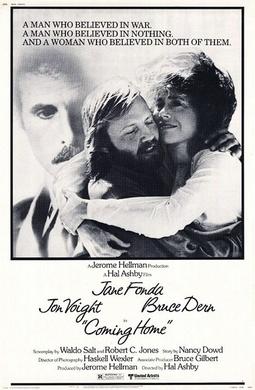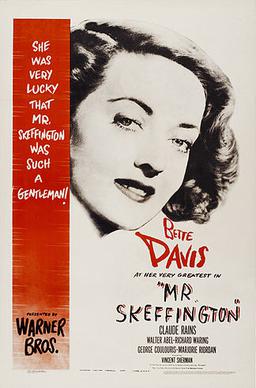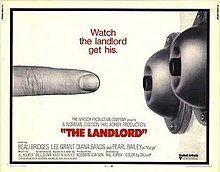
Of Mice and Men is a 1939 American drama film based on the 1937 play of the same name, which itself was based on the novella of the same name by author John Steinbeck. The film stars Burgess Meredith, Betty Field, and Lon Chaney Jr., and features Charles Bickford, Roman Bohnen, Bob Steele, and Noah Beery Jr. The film tells the story of two men, George and his intellectually disabled partner Lennie, trying to survive during the dustbowl of the 1930s and pursuing a dream of owning their own ranch instead of always working for others. Starring in the lead roles were relative Hollywood newcomer Burgess Meredith as George and veteran actor Lon Chaney Jr. as Lennie. Chaney had appeared in more than 50 films by that point in his career, but Of Mice and Men was his first major role. Betty Field's role as Mae was her breakthrough role in film.

Dangerous Liaisons is a 1988 American period romantic drama film directed by Stephen Frears from a screenplay by Christopher Hampton, based on his 1985 play Les liaisons dangereuses, itself adapted from the 1782 French novel of the same name by Pierre Choderlos de Laclos. It stars Glenn Close, John Malkovich, Michelle Pfeiffer, Uma Thurman, Swoosie Kurtz, Mildred Natwick, Peter Capaldi and Keanu Reeves.

Bound for Glory is a 1976 American biographical film directed by Hal Ashby and loosely adapted by Robert Getchell from Woody Guthrie's 1943 partly fictionalized autobiography Bound for Glory. The film stars David Carradine as folk singer Woody Guthrie, with Ronny Cox, Melinda Dillon, Gail Strickland, John Lehne, Ji-Tu Cumbuka and Randy Quaid. Much of the film is based on Guthrie's attempt to humanize the desperate Okie Dust Bowl refugees in California during the Great Depression.

Coming Home is a 1978 American romantic war drama film directed by Hal Ashby from a screenplay written by Waldo Salt and Robert C. Jones with story by Nancy Dowd. It stars Jane Fonda, Jon Voight, Bruce Dern, Penelope Milford, Robert Carradine and Robert Ginty. The film's narrative follows a perplexed woman, her Marine husband and a paraplegic Vietnam War veteran with whom she develops a romantic relationship, while her husband is deployed in Vietnam.

I Am Sam is a 2001 American comedy film co-written and directed by Jessie Nelson. It stars Sean Penn, Michelle Pfeiffer, Dianne Wiest, Dakota Fanning, Elle Fanning, Richard Schiff, Loretta Devine and Laura Dern.

Mr. Skeffington is a 1944 American drama film directed by Vincent Sherman, based on the 1940 novel of the same name by Elizabeth von Arnim.

William Hal Ashby was an American film director and editor. His work exemplified the countercultural attitude of the era. He directed wide ranging films featuring iconic performances. He is associated with the New Hollywood wave of filmmaking with filmmakers such as Martin Scorsese, Woody Allen, Mike Nichols, and Sidney Lumet.

Richard Stuart Linklater is an American film director, producer, and screenwriter. He is known for making films that deal thematically with suburban culture and the effects of the passage of time. His films include the comedies Slacker (1990) and Dazed and Confused (1993); the Before trilogy of romance films: Before Sunrise (1995), Before Sunset (2004), and Before Midnight (2013); the music-themed comedy School of Rock (2003); the adult animated films Waking Life (2001), A Scanner Darkly (2006), and Apollo 10 1⁄2: A Space Age Childhood (2022); the coming-of-age drama Boyhood (2014); and the comedy film Everybody Wants Some!! (2016).

Shampoo is a 1975 American comedy film directed by Hal Ashby, and starring Warren Beatty, Julie Christie, Goldie Hawn, Lee Grant, Jack Warden, Tony Bill, and Carrie Fisher in her film debut. Co-written by Beatty and Robert Towne, the film follows a promiscuous Los Angeles hairdresser on Election Day 1968, as he juggles his relationships with several women. The film is a satire focusing on the theme of sexual politics and late-1960s sexual and social mores.

Funny Lady is a 1975 American biographical musical comedy-drama film and the sequel to the 1968 film Funny Girl. The film stars Barbra Streisand, James Caan, Omar Sharif, Roddy McDowall and Ben Vereen.

The Kid is a 2000 American fantasy comedy-drama film, directed by Jon Turteltaub and written by Audrey Wells. The film follows a 40-year-old image consultant who is mysteriously confronted by an eight-year-old version of himself ; Emily Mortimer, Lily Tomlin, Chi McBride, and Jean Smart also star.

Susanne Bier is a Danish filmmaker. She is best known for her feature films Brothers (2004), After the Wedding (2006), In a Better World (2010), and Bird Box (2018), and the TV miniseries The Night Manager (2016) on AMC, The Undoing (2020) on HBO, and The First Lady (2022) on Showtime. Bier is the first female director to win a Golden Globe Award, a Primetime Emmy Award, and a European Film Award, collectively.

Life or Something Like It is a 2002 American romantic comedy-drama film directed by Stephen Herek. The film focuses on television reporter Lanie Kerrigan and her quest to find meaning in her life. The original music score was composed by David Newman.

Claire's Knee is a 1970 French romantic drama film written and directed by Éric Rohmer. It follows a soon-to-be-married man and his conflicted relationship with two teenage girls. The film stars Jean-Claude Brialy, Aurora Cornu, Béatrice Romand and Laurence de Monaghan. It is the fifth film in the series of the Six Moral Tales (1963–1972).

The Year My Parents Went on Vacation is a 2006 Brazilian drama film directed by Cao Hamburger. The screenplay, which took four years to be completed, was written by Hamburger, Adriana Falcão, Claudio Galperin, Anna Muylaert and Bráulio Mantovani.

Let's Do It Again is a 1975 American action crime comedy film, starring Sidney Poitier and co-starring Bill Cosby and Jimmie Walker among an all-star black cast. The film, directed by Poitier, is about blue-collar workers who decide to rig a boxing match to raise money for their fraternal lodge. The song of the same name by The Staple Singers was featured as the opening and ending theme of the film, and as a result, the two have become commonly associated with each other. The production companies include Verdon Productions and The First Artists Production Company, Ltd., and distributed by Warner Bros. The movie was filmed in two cities, Atlanta, Georgia and New Orleans, Louisiana, where most of the plot takes place. This was the second film pairing of Poitier and Cosby following Uptown Saturday Night, and followed by A Piece of the Action (1977). Of the three, Let's Do It Again has been the most successful both critically and commercially. Calvin Lockhart and Lee Chamberlin also appeared in Uptown Saturday Night. According to the American Film Institute, Let's Do It Again is not a sequel to Uptown Saturday Night.

The Great White Hope is a 1970 American biographical romantic drama film written and adapted from the 1967 Howard Sackler play of the same name.

Black Dynamite is a 2009 American blaxploitation action comedy film starring Michael Jai White, Tommy Davidson, and Salli Richardson. The film was directed by Scott Sanders and co-written by White, Sanders, and Byron Minns, who also co-stars.

Beginners is a 2010 American romantic comedy-drama film written and directed by Mike Mills. It tells the story of a man reflecting on the life and death of his father, while trying to forge a new romantic relationship with a woman dealing with father-issues of her own. The film is based on the coming out of Mills' own father at the age of 75, five years before his death.
Don Zimmerman is an American film editor.


















